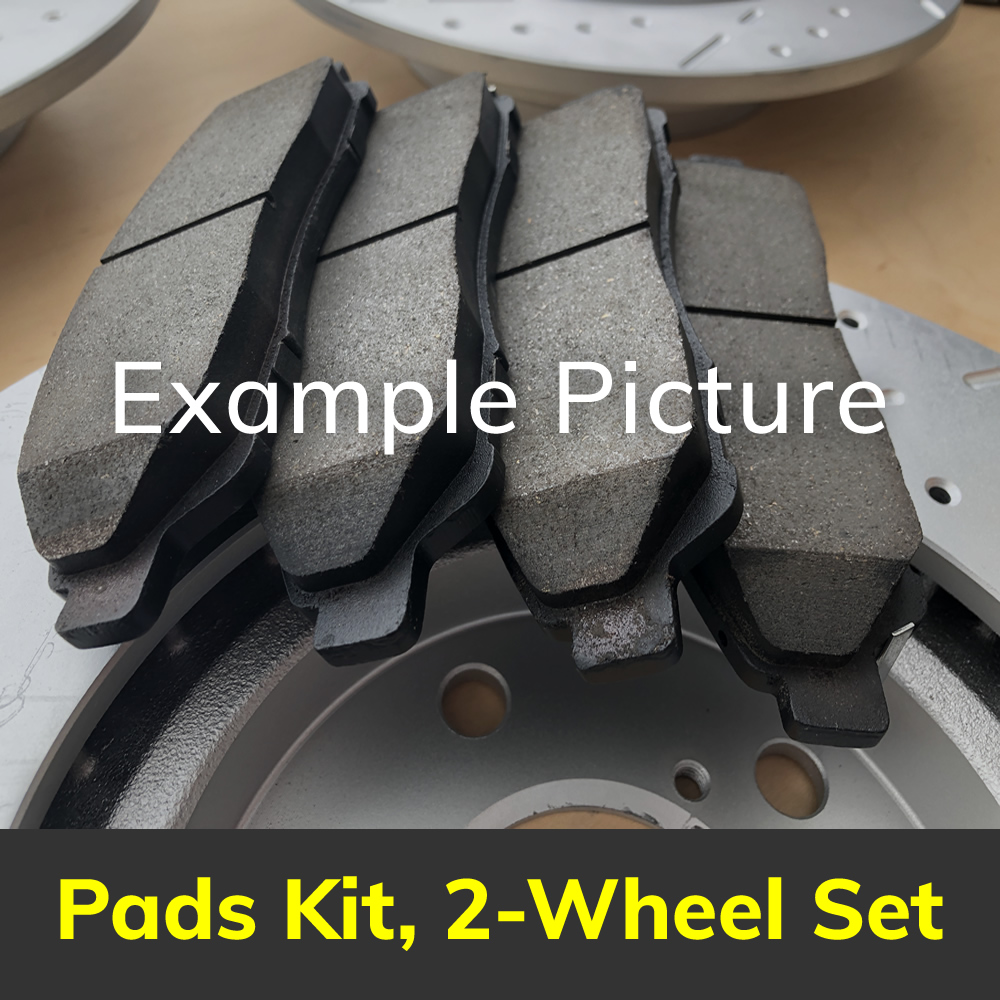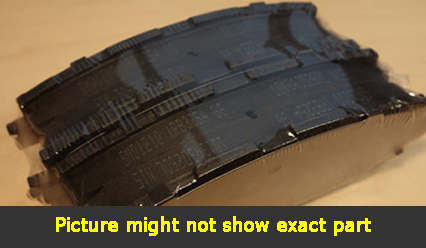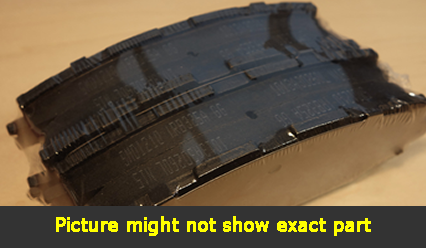2008 Ford E-350 Econoline Brake Rotors and Pads
Click here to search another vehicle
All Rotors:
OEM x
Coated x
Drilled, Slotted and Coated x
Front x
Rear x
All Pads:
Ceramic x
Semi-metallic x
Front x
Rear x
Found 3 record

Part No: PD1328C
Raybestos:
OE:
Raybestos:
OE:
$42.77 each
Per Car QTY: 1

Part No: SMD1328
Raybestos:
OE:
Raybestos:
OE:
$35.78 each
Per Car QTY: 1

Part No: SMD1329
Raybestos:
OE:
Raybestos:
OE:
$34.07 each
Per Car QTY: 1
When it comes to maintaining the safety and performance of your car, choosing the right brakes is crucial. Your car's brakes play a vital role in ensuring your safety on the road, so it's essential to choose the right ones for your vehicle. If you own a 2008 Ford E-350 Econoline, here are some rules to keep in mind when selecting brake systems for your vehicle.
1. Know Your Driving Habits: Understanding your driving habits and conditions is crucial when selecting brakes. Consider whether your driving involves mostly city streets or longer highway stretches. If you frequently encounter stop-and-go traffic, you'll need brakes that can handle frequent stops and reduced heat buildup. Alternatively, if you mainly drive on open highways, rotors and pads that can withstand high speeds and provide excellent stopping power will be more suitable.
2. Choose the Right Brake Type: There are several types of braking systems available, including traditional brake pads and rotors, ceramic brakes, and performance brakes. Each type has unique advantages and disadvantages, so it's important to choose wisely. Traditional brake pads and rotors are suitable for regular driving, providing a good balance of performance, durability, and affordability. Ceramic brakes offer better heat dissipation and longer life, making them ideal for heavy-duty applications. Performance brakes, on the other hand, are designed for sports or high-performance vehicles, offering enhanced braking power and heat resistance.
3. Consider Brake Pad Material: Brake pads come in various materials, and selecting the right one can significantly impact your braking performance. Organic brake pads are made from organic materials like rubber, kevlar, and glass. They provide a quiet operation and low heat transfer but offer average stopping power. Semi-metallic brake pads have a mixture of metal filaments and other materials, offering improved heat resistance and enhanced stopping power. However, they may produce more noise and wear the rotors faster. Lastly, ceramic brake pads are known for their thermal stability and low noise production. They create minimal dust and have exceptional stopping power but tend to be more expensive than other options.
4. Consider OEM vs. Aftermarket: Original Equipment Manufacturer (OEM) brakes are designed specifically for your vehicle's make and model. They ensure a precise fit and the same level of performance as the original brakes that came with your car. However, OEM brakes can be more expensive. Alternatively, aftermarket brakes are more affordable and come in a wide range of options with different performance characteristics. If you're looking to enhance your braking performance or have specific requirements, aftermarket brakes can be a suitable choice. Ensure that you choose reputable and trusted brands to maintain quality and safety.
5. Seek Professional Advice: If you're unsure about which brakes to choose for your Ford E-350 Econoline, it's always a good idea to consult a professional mechanic or service center. They can provide valuable insights based on their experience and knowledge. A skilled technician will consider various factors such as your driving habits, type of vehicle, and budget to recommend the most suitable brake system for your car.
Remember, maintaining the brakes on your 2008 Ford E-350 Econoline is crucial for your safety and the safety of those around you. By following these rules and investing in high-quality brakes, you can ensure optimal braking performance, shorter stopping distances, and a smoother driving experience.
1. Know Your Driving Habits: Understanding your driving habits and conditions is crucial when selecting brakes. Consider whether your driving involves mostly city streets or longer highway stretches. If you frequently encounter stop-and-go traffic, you'll need brakes that can handle frequent stops and reduced heat buildup. Alternatively, if you mainly drive on open highways, rotors and pads that can withstand high speeds and provide excellent stopping power will be more suitable.
2. Choose the Right Brake Type: There are several types of braking systems available, including traditional brake pads and rotors, ceramic brakes, and performance brakes. Each type has unique advantages and disadvantages, so it's important to choose wisely. Traditional brake pads and rotors are suitable for regular driving, providing a good balance of performance, durability, and affordability. Ceramic brakes offer better heat dissipation and longer life, making them ideal for heavy-duty applications. Performance brakes, on the other hand, are designed for sports or high-performance vehicles, offering enhanced braking power and heat resistance.
3. Consider Brake Pad Material: Brake pads come in various materials, and selecting the right one can significantly impact your braking performance. Organic brake pads are made from organic materials like rubber, kevlar, and glass. They provide a quiet operation and low heat transfer but offer average stopping power. Semi-metallic brake pads have a mixture of metal filaments and other materials, offering improved heat resistance and enhanced stopping power. However, they may produce more noise and wear the rotors faster. Lastly, ceramic brake pads are known for their thermal stability and low noise production. They create minimal dust and have exceptional stopping power but tend to be more expensive than other options.
4. Consider OEM vs. Aftermarket: Original Equipment Manufacturer (OEM) brakes are designed specifically for your vehicle's make and model. They ensure a precise fit and the same level of performance as the original brakes that came with your car. However, OEM brakes can be more expensive. Alternatively, aftermarket brakes are more affordable and come in a wide range of options with different performance characteristics. If you're looking to enhance your braking performance or have specific requirements, aftermarket brakes can be a suitable choice. Ensure that you choose reputable and trusted brands to maintain quality and safety.
5. Seek Professional Advice: If you're unsure about which brakes to choose for your Ford E-350 Econoline, it's always a good idea to consult a professional mechanic or service center. They can provide valuable insights based on their experience and knowledge. A skilled technician will consider various factors such as your driving habits, type of vehicle, and budget to recommend the most suitable brake system for your car.
Remember, maintaining the brakes on your 2008 Ford E-350 Econoline is crucial for your safety and the safety of those around you. By following these rules and investing in high-quality brakes, you can ensure optimal braking performance, shorter stopping distances, and a smoother driving experience.


